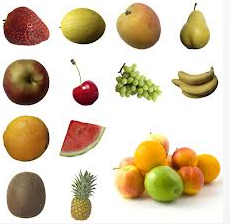In the basic word list, I point out the importance of Googling your images in the target language, and being very careful when you don’t get the results you expect, since languages don’t translate one-to-one. I point out that German, for example, doesn’t have separate words for “Foot” and “Leg” - they’re all Fuß.
Several readers pointed out that German does, in fact, have a separate word for leg (das Bein). This is true, making my example, well, not true.  It’s been fixed.
It’s been fixed.
But! It does bring up an interesting point about regional dialects and the vagueness of words. Down here in Austria (and in Southern Germany), the word “Bein” does exist (and does mean leg), but Fuß can mean foot AND leg. So when someone says “Ich habe mir den Fuß gebrochen” (I broke my Fuß) - you actually have no idea where the break is. Regional dialects are a tricky thing, because you can speak a language just fine, move to a place, and not understand much of anything for a while.
Site news: A few cosmetic updates throughout the site. Many thanks to readers who have sent in bug reports and mistakes and stuff that looks weird on their browsers. Keep sending in those screenshots! Surely I’ll get this thing working eventually.




 In most grammar classes and textbooks, you learn words in groups. You might learn about animals on one day and fruits the next. This is comfortable, both for language teachers and students. Your teacher gets to have a clear lesson plan (today is about numbers), and you get to accomplish something (today, I learned the numbers!).
In most grammar classes and textbooks, you learn words in groups. You might learn about animals on one day and fruits the next. This is comfortable, both for language teachers and students. Your teacher gets to have a clear lesson plan (today is about numbers), and you get to accomplish something (today, I learned the numbers!).